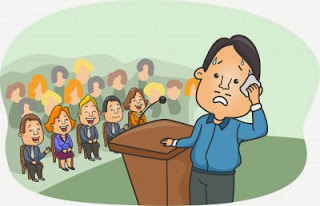Education is an ornament in prosperity and a refuge in adversity.
Aristotle
Read more at http://www.brainyquote.com/quotes/keywords/adversity.html#Zo5vghgPhUivrpYd.99
Aristotle
Read more at http://www.brainyquote.com/quotes/keywords/adversity.html#Zo5vghgPhUivrpYd.99
"Education is an ornament in prosperity and a refuge in adversity."
~Aristotle
Yes, I took/take negative feedback to heart and took it personally. No, I didn't spin around and point the finger. It all came down to moi, me, it, she, the person being at fault for letting the customer down on an important project, document, promise for quality and deadline.
Spiral forward today. It makes perfect business sense that no person, department or company is perfect. Those wise words jump out to emphasize that what sets all of us apart is how we handle adversity.
Call it a good characteristic or bad, but I always care. I have always wanted to give customers the best experience, deliver on my promises (which 9 out of 10 times had operations endorse and support in advance or be savvy enough to know our capabilities so that I wouldn't want to set up our organization for failure) so that they would continue to buy from us, and even better if they would recommend and send out accolades on not where we fell short, but how we stepped up to the challenge to make amends for our mistakes.
Regardless of who you are, the team that supports you, or the company you represent ... mistakes DO happen. I can chuckle at my earliest naïve junior experiences where I wanted to control everyone and everything to guarantee that what I promised to the customer would be carried out. Maturity and experience today underlines how unrealistic that is. Bottom line, you can't do everything thus You have to TRUST your TEAM. You don't or won't have a team to support you if you throw them under the bus when matters go askew.
Yes, those projects, performances or promises fall on your shoulders. Regardless of how high you sit, from the executive suite, to the middle on sales or customer service shoulders, lower to the personnel responsible to make it happen ... you CANNOT make your problem your customer's problem!
I shudder recalling an executive telling me we lost their business, not because we were priced so high per se, but because our competitors proved that we were complacent and were not proving value for what they were paying that was wisely proven by a competitor. Yes, I was exuberant when I won business from a competitor because we showed more value! Yet I never forgot the corporate executive who had enough to show me that we had let them down. No, it wasn't about price. Yes, price made it enough of a factor for them to pay attention when the service fell.
My goodness, how I remember being held accountable for my team when a customer told me that it wasn't their job to train my people. Lack of CRM (Customer Service Management) system to streamline transactions or avoid gaps amongst those interacting with a customer was one area that could have improved matters. Preventing turnover is certainly a no-brainer!
Soooooo .. what do you do when you fail? Do you offer a discount, refund or gesture of goodwill that more often than not represents a complete redo, re-engagement for free? That is often the dilemma that falls on the shoulders of those wiping up the mistakes and trying to restore goodwill. Whatever you do, don't send in your most aggressive barracuda to match wits with the customer and out aggressive the customer so that they back down on expressing their disappointment.
At minimum you should review projects, promises and performance after each single transaction! There is something to be learned, improved upon each and every time. Mandate debriefs with your team, your client every single important transaction. At least it would show you are not complacent or take your customers for granted. Don't wait for them to complain or demand retribution/refund/replacement. Be proactive for heavens sake!
When a customer complains, they are actually handing you an opportunity to make improvements on a golden platter. Pay attention. Mandate that any online or otherwise feedback be communicated upstream not just to management but to the executives as well. Don't have your CSRs tell a customer that it has been taken care of and communicated to management. If that is all you do, there falls the lack of accountability. Unfortunately, if management knows that executives will be informed they just may pay attention.
Pay attention to customer feedback. Document it, incorporate actionable improvements, communicate it to executives so the entire organization can debrief and formulate a proactive plan. HR has enough on its plate to make it their mandate, examine training, communications scripts, and get everyone involved.
You can turn an adversary, complaint, into an advocacy. It IS within your control. If you just channel the communications or put it on yourself to contradict the customer, you are not turning them into advocates, you are championing the spread of their discontent. In today's world of social media, discontent or controversy spreads faster than good news. Be proactive in your good news. Remember, we all mistakes, nobody is perfect ... but how you handle adversity totally reflects on how important it is for you to turn it into making those people advocates based on how you handle it.










